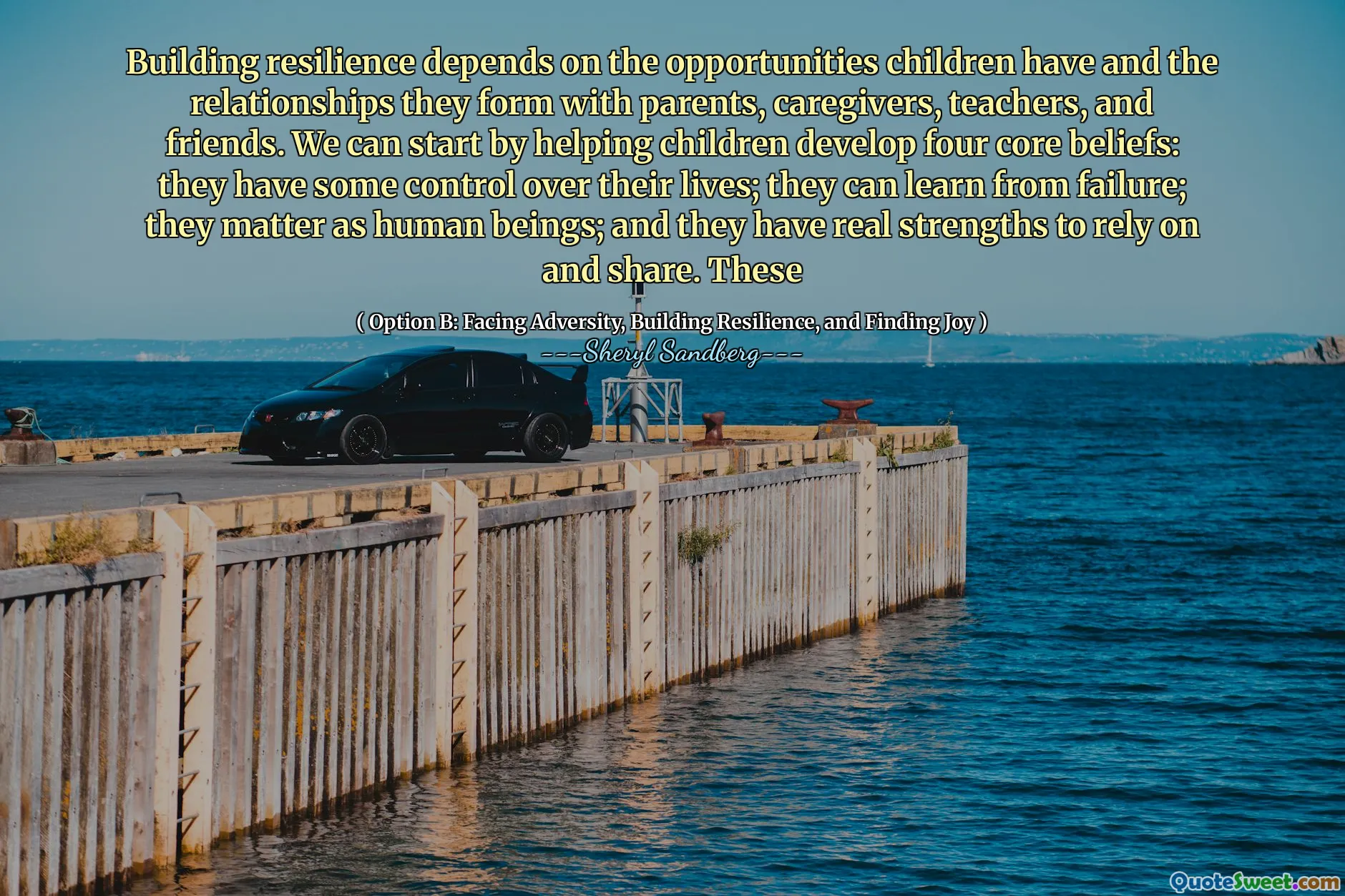
Building resilience depends on the opportunities children have and the relationships they form with parents, caregivers, teachers, and friends. We can start by helping children develop four core beliefs: they have some control over their lives; they can learn from failure; they matter as human beings; and they have real strengths to rely on and share. These
The quote highlights the fundamental role that environment and relationships play in fostering resilience among children. Resilience, fundamentally, is the capacity to adapt, recover, and thrive despite adversity. By emphasizing the importance of opportunities and supportive relationships—such as those with parents, caregivers, teachers, and friends—it underscores that resilience isn't solely an innate trait but is cultivated through external factors. The four core beliefs outlined serve as pillars that reinforce a child's sense of agency, self-worth, and internal strength. When children believe they have some control over their lives, they develop confidence and motivation to face challenges proactively. Understanding that failure is a learning opportunity rather than a definitive setback encourages resilience and persistence. Feeling valued and recognizing their inherent worth, as humans, boosts their emotional security and self-esteem, which are vital during difficult times. Lastly, acknowledging and sharing their genuine strengths focus on empowerment, helping children see themselves as capable and resilient individuals. Creating environments rich with supportive relationships fosters these beliefs, nurturing their mental and emotional development. This concept resonates deeply because it confirms that resilience is not just an individual trait but a dynamic quality that can be cultivated through intentional support and nurturing. As adults, our role is to provide the opportunities and relationships that enable children to internalize these core beliefs, ultimately equipping them to face life's inevitable challenges with confidence and hope.






